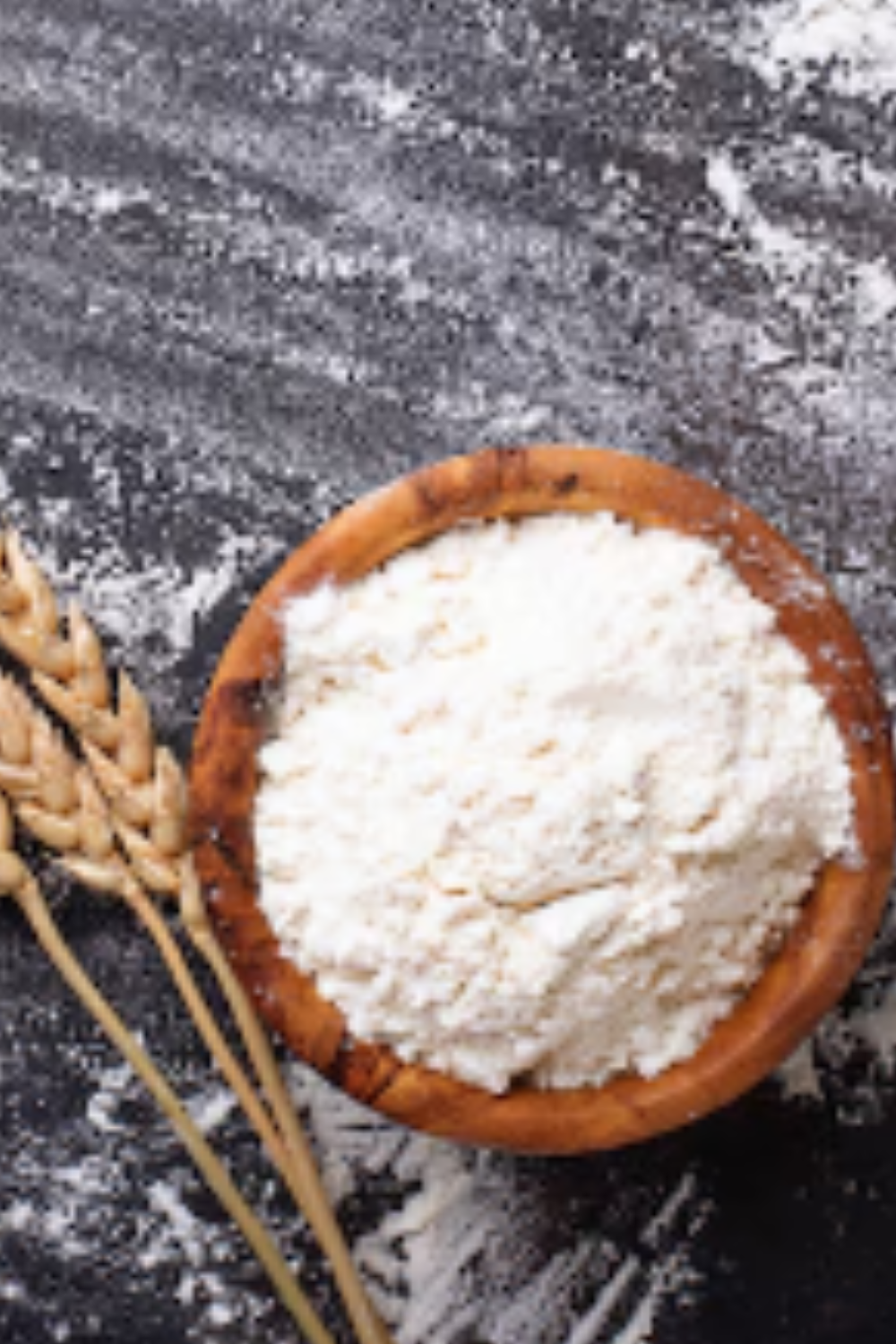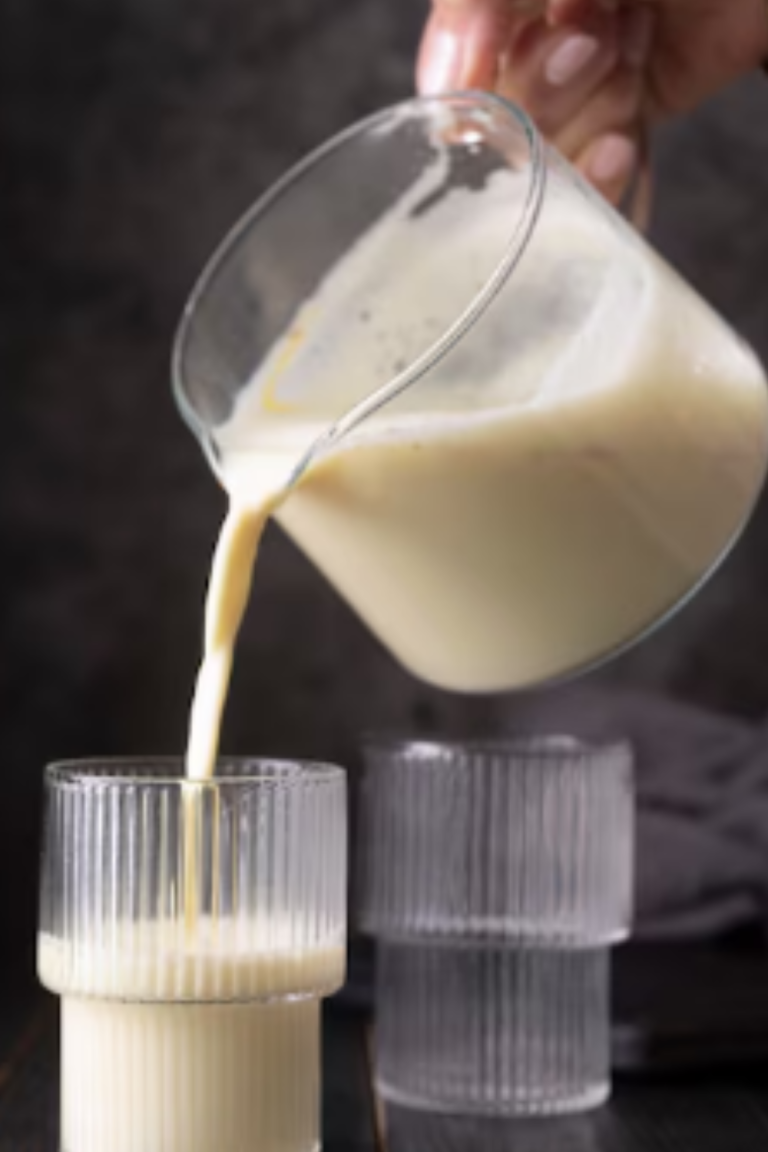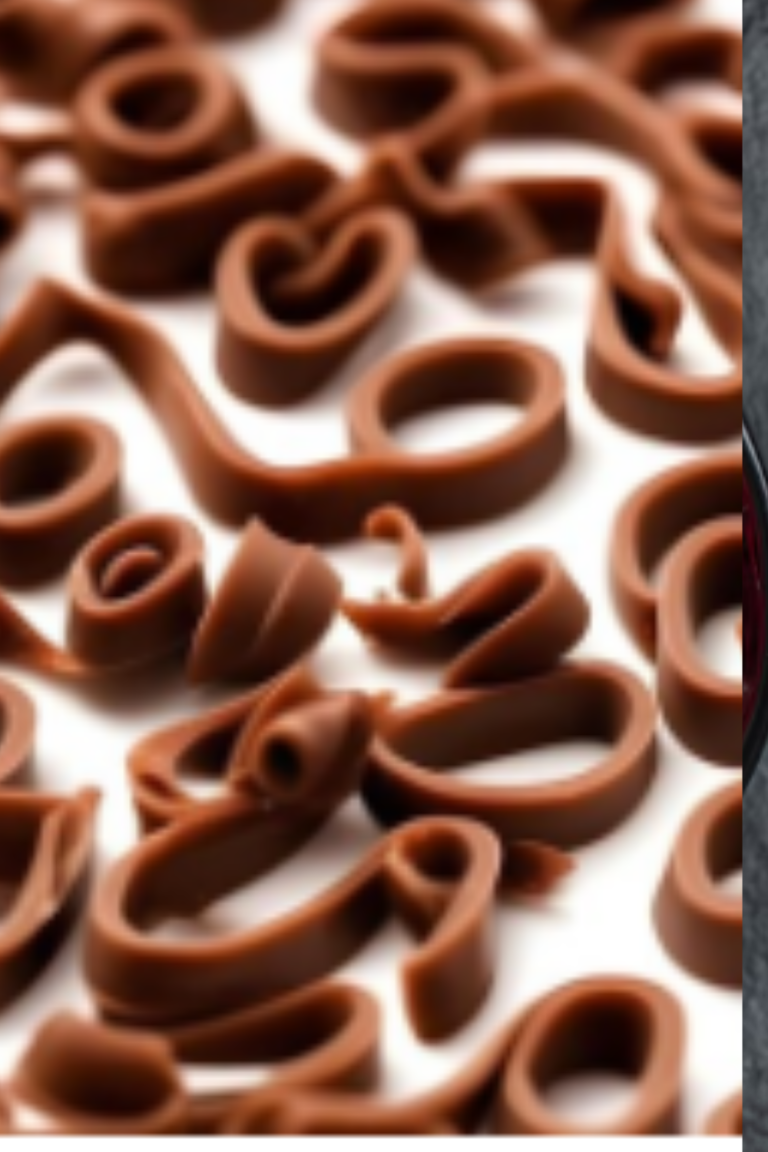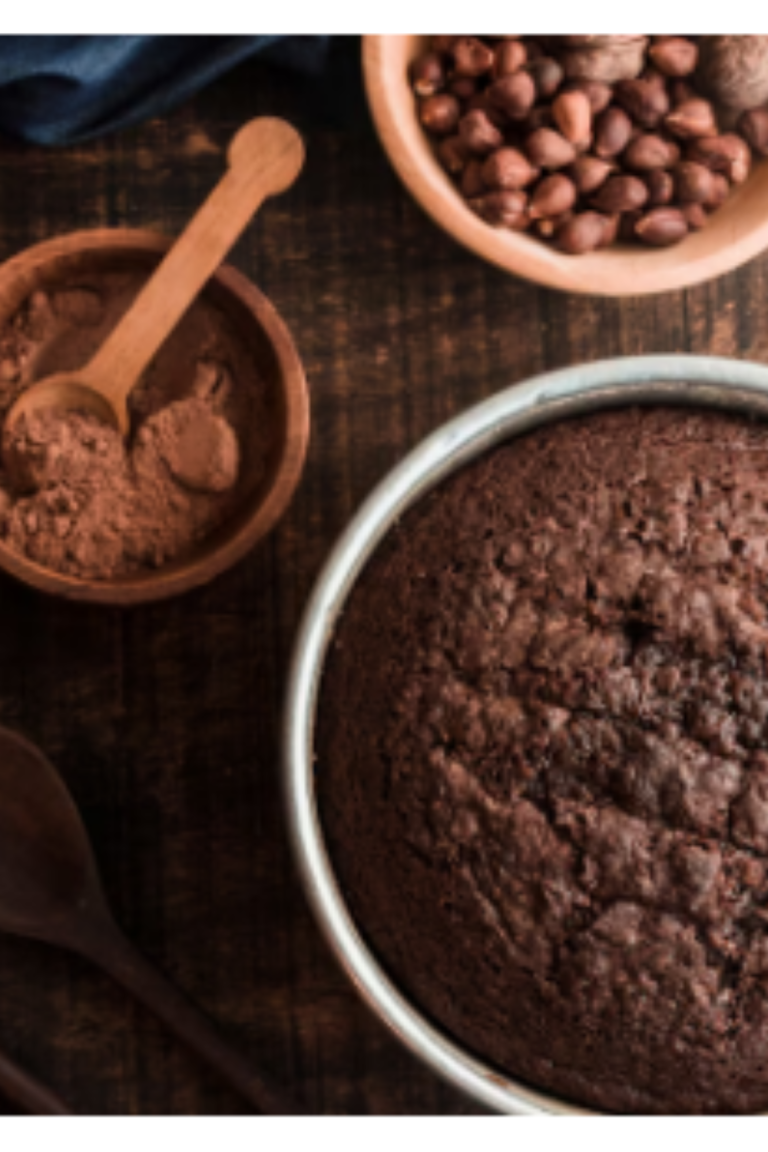WF: Whole Flour role in cakes Explained
When it comes to baking cakes, the type of flour you use can significantly impact the texture, flavor, and even the nutritional value of your baked goods. Whole flour, in particular, plays a crucial role in creating cakes that are not only delicious but also healthier compared to those made with refined flours.
Table of Contents
ToggleWhat is Whole Flour in Cakes and Its Role
Whole flour is essentially flour that includes the entire grain the bran, germ, and endosperm. This means it retains more of the natural nutrients found in the grain, such as fiber, vitamins, and minerals. In contrast, refined flours, like all-purpose flour, are processed to remove the bran and germ, leaving only the starchy endosperm. Check out the right Whole Flour, and ingredients that you need here.

What Makes It Ideal for Cakes?
Nutritional Benefits: Whole flour adds nutritional value to your cakes, providing more fiber which aids in digestion and helps keep you feeling full longer.
Texture and Moisture: When used correctly, whole flour can create a denser and moister cake compared to those made with refined flours. This can be particularly desirable in certain types of cakes, such as carrot cake or banana bread, where a slightly heavier texture complements the flavors.
Flavor Enhancement: Whole flour can impart a slightly nuttier flavor to cakes, enhancing the overall taste and adding depth. Check out the right Whole Flour, and ingredients that you need here.
Tips for Using Whole Flour in Cakes
- Substitution: You can substitute whole flour for a portion of all-purpose flour in most cake recipes. Start by replacing up to half of the flour with whole flour to see how it affects the texture and flavor.
- Adjusting Moisture: Whole flour absorbs more moisture than refined flours, so you may need to increase the liquid ingredients slightly or adjust baking times to ensure your cake turns out perfectly moist.
Drilling Deeper: Comparing Whole Flour with Refined Flours
When comparing whole flour to refined flours like all-purpose flour in the context of baking cakes, several key differences emerge that can influence your baking experience and the final product.
Nutritional Value
- Whole Flour: Retains the natural nutrients found in the grain, including fiber, vitamins (like B vitamins and folate), minerals (such as iron and magnesium), and antioxidants.
- Refined Flours: Often stripped of the bran and germ during processing, which removes a significant portion of these nutrients. While some refined flours are enriched with certain vitamins and minerals, they still lack the fiber and other beneficial components found in whole flour.
Flavor Profile
- Whole Flour: Adds a subtle, nutty flavor to cakes, which can enhance the overall taste and provide a richer eating experience.
- Refined Flours: Tend to have a neutral flavor, which makes them versatile but may not contribute as much to the depth of flavor in baked goods. Check out the right Whole Flour, and ingredients that you need here.
Texture and Moisture
- Whole Flour: Due to its higher fiber content, cakes made with whole flour may have a denser texture and hold moisture better, resulting in a moist and slightly chewier cake.
- Refined Flours: Often produce lighter and fluffier cakes due to their lower fiber content and different gluten formation during baking.
Baking Tips and Considerations
- Consistency: Whole flour can vary in texture and absorption rates depending on the grain used and how finely it’s ground. Experimentation with different brands or grinding methods may be necessary to achieve consistent results.
- Recipe Adaptation: When substituting whole flour for refined flours, adjustments in liquid content or baking times may be needed to achieve the desired texture and rise in your cakes.
In essence, while both whole flour and refined flours have their merits in baking cakes, choosing whole flour can offer added nutritional benefits and a unique flavor profile that enhances your baking. Whether you’re aiming for a healthier option or simply exploring new tastes, incorporating whole flour into your baking repertoire can lead to cakes that are not only delicious but also nourishing. Check out the right Whole Flour, and ingredients that you need here.
comparison tabular
| Aspect | Whole Flour | Refined Flours (e.g., All-Purpose Flour) |
|---|---|---|
| Nutritional Value | Contains bran, germ, fiber, vitamins (B vitamins, folate), minerals (iron, magnesium), antioxidants | Often stripped of bran and germ, lower in fiber and nutrients; some enriched with vitamins and minerals |
| Flavor | Adds a nutty, earthy flavor; enhances overall taste | Neutral flavor; versatile for various recipes |
| Texture | Dense texture, holds moisture well | Light and fluffy texture; less moisture retention |
| Baking Properties | Requires adjustments in liquid content and baking times; may vary in texture depending on grain and grind | Consistent texture and performance; well-suited for most baking recipes |
| Health Benefits | Higher fiber content aids digestion; provides sustained energy | Lower fiber content; may contribute to quicker digestion and satiety |
| Recipe Adaptation | May require experimentation with ratios for desired texture and rise | Generally straightforward; widely used in standard recipes |
| Usage Recommendation | Ideal for health-conscious bakers looking to enhance nutritional value | Suitable for most baking needs; versatile and widely available |
Considerations:
- Nutritional Impact: Whole flour offers superior nutritional benefits due to its retention of bran, germ, and higher fiber content, which contributes to better digestive health.
- Flavor and Texture: Whole flour adds a distinct nutty flavor and denser texture to cakes, whereas refined flours typically result in lighter and fluffier textures.
- Baking Adjustments: When substituting whole flour for refined flours, adjustments in liquid content and baking times are necessary to achieve desired results.
- Health Benefits: Choosing whole flour can support a balanced diet by providing essential nutrients and promoting overall wellness. Check out the right Whole Flour, and ingredients that you need here.
FAQs about Using Whole Flour in Cakes
Q: Can I substitute whole flour for refined flour in any cake recipe?
A: Yes, you can substitute whole flour for refined flours like all-purpose flour in most cake recipes. Start by replacing up to half of the flour with whole flour and adjust moisture levels as needed.
Q: Will using whole flour make my cakes denser?
A: Whole flour tends to create a denser texture in cakes due to its higher fiber content. This can be desirable for certain types of cakes, such as carrot cake or banana bread.
Q: How does whole flour affect the flavor of cakes?
A: Whole flour adds a subtle, nutty flavor to cakes, which can enhance the overall taste and provide a richer eating experience compared to cakes made with refined flours.
Q: Do I need to adjust baking times when using whole flour?
A: Yes, baking times may need to be adjusted slightly when using whole flour, as it absorbs more moisture than refined flours. Keep an eye on your cake during baking and use a toothpick test to ensure it’s cooked through.
Q: Is whole flour healthier than refined flours?
A: Yes, whole flour retains more nutrients, including fiber, vitamins, minerals, and antioxidants, compared to refined flours that are often stripped of these components during processing. Check out the right Whole Flour, and ingredients that you need here.
Final Words
Choosing to use whole flour in your cakes not only adds nutritional value but also enhances the flavor and texture of your baked goods. Experiment with different recipes and ratios to find the perfect balance that suits your taste preferences and dietary goals. Whether you’re baking for health reasons or simply exploring new flavors, incorporating whole flour can elevate your baking experience and delight those enjoying your delicious creations. Happy baking.

Hi!
I’m Mike, the creator of Forum Foodies. In my own personal experience, understanding ingredients is key to great cooking.
Forum Foodies offers guides on various ingredients, from staples to exotic finds. Join our community, share your experiences, and learn from fellow food lovers.
Have questions or suggestions? Email me at info@forumfoodies.com. Let’s embark on this delicious adventure together.
Happy cooking.
Mike/
Related Posts
- BF: Bread Flour role in cakes Explained
In this topic, I'm going to talk about Bread Flour and its role in cakes…
- CF: Coconut Flour role in cakes Explained
In this article, I'm going to talk about coconut flour and its role in cakes,…
- OGF: Organic Flour role in cakes Explained
In this topic, I'm going to talk about organic flour in my own personal experience.…
- FF: Fine Flour role in cakes Explained
In this topic I'm going to talk about Fine Flour from my own personal experience.…
- DF: Date Flour role in cakes Explained
In this topic, I'm going to talk about date flour and its role in cakes,…
- ATF: All-Tapioca Flour role in cakes Explained
In this topic, I'm going to talk about the role of All-Tapioca Flour (ATF) in…
- BFW: Buckwheat Flour role in cakes Clarified
In this topic, I'm going to talk about Buckwheat Flour (BFW) and its role in…
- CCTF: Chocolate Cake Flour role in cakes Explained
In this topic, I'm going to talk about a crucial ingredient in baking: Chocolate Cake…
- ACF: Almond Cake Flour role in cakes Explained
In this topic, I'm going to talk about Almond Cake Flour something I've come to…
- LDF: Lightly Dry Flour role in cakes Explained
In this topic, I'm going to talk about Lightly Dry Flour (LDF) in my own…
- AFS: Almond Flour Sponge role in cakes Clarified
In this topic, I'm going to talk about the role of almond flour sponge in…
- AF: Almond Flour its role in cakes Explained
In this topic, I'm going to talk about almond flour and its role in cakes,…
- CWF: Corn Wheat Flour role in cakes Explained
In this topic, I'm going to talk about CWF - Corn Wheat Flour, based on…
- HPF: High-Protein Flour role in cakes Clarified
In this topic, I'm going to talk about High-Protein Flour (HPF) and its role in…
- GLF: Gluten-Free Flour role in cakes Explained
In this topic, I'm going to talk about gluten-free flour, drawing from my own personal…





